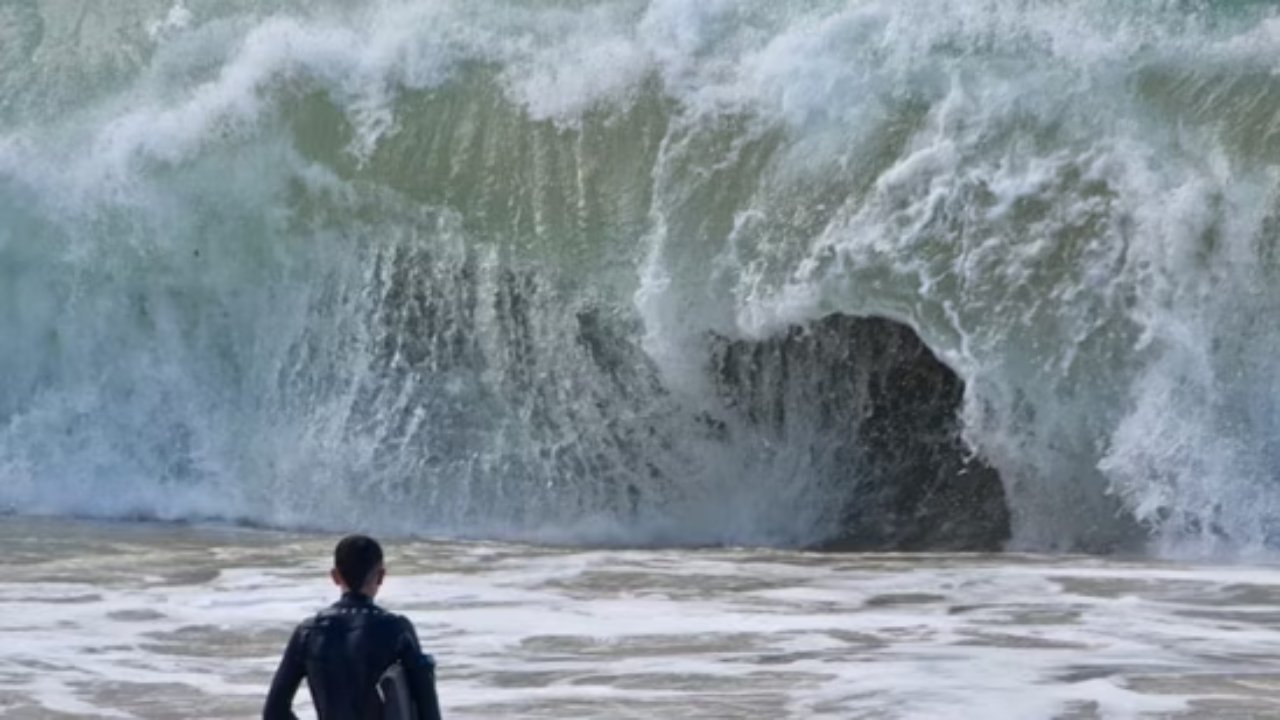The Silent Symphony: Blue Whales’ Alarming Quietude Signals Ocean Crisis
Blue whales, the largest creatures to ever inhabit Earth, are known for their haunting, low-frequency songs that resonate across vast ocean expanses. These vocalizations, critical for mating, navigation, and social bonding, have long been a cornerstone of marine ecosystems. However, recent studies have revealed a troubling phenomenon: blue whales are going eerily silent, with vocalizations dropping by nearly 40% in some regions. This acoustic disappearance, observed globally from California to the South Pacific, is a stark warning of ecological distress driven by climate change, marine heatwaves, and human activity. This article explores the latest findings, their implications, and what the silence of these ocean giants means for the planet.
The Science Behind the Silence
A six-year study conducted by the Monterey Bay Aquarium Research Institute, published in PLOS One, documented a 40% decline in blue whale vocalizations off California’s coast from 2015 to 2021. Using hydrophones—underwater microphones—researchers tracked whale songs during a period coinciding with a massive marine heatwave known as “The Blob.” This heatwave, which began in 2013 and spanned over 2,000 miles of the Pacific by 2016, raised ocean temperatures by more than 4.5°F, triggering catastrophic ecological changes.
The primary culprit behind the whales’ silence is the collapse of their food sources, particularly krill and anchovies. Blue whales rely almost exclusively on krill, consuming thousands of gallons of water to filter these tiny crustaceans. However, marine heatwaves disrupt nutrient-rich ocean currents, leading to krill population declines and toxic algae blooms that further poison marine life. John Ryan, a biological oceanographer at Monterey Bay, likened the whales’ plight to “trying to sing while you’re starving,” as they divert energy from vocalizing to searching for scarce food.
Similar patterns have been observed globally. In New Zealand waters, researchers noted quiet seas during the Blob years (2016–2018), while in the southern Indian Ocean, blue whale calls have shown a steady decline in frequency since the 1960s. In the South Pacific and Southern Ocean, entire months have passed with near silence, a phenomenon described as an “acoustic disappearance” that signals broader ecosystem unraveling.

The Role of Human Activity
Beyond climate-driven heatwaves, human activities exacerbate the crisis. Noise pollution from shipping, drilling, and seismic testing overlaps with the low-frequency range of blue whale songs (around 20 Hz), drowning out their calls. This “acoustic masking” forces whales to either expend more energy to sing louder or fall silent to conserve resources, further disrupting mating and social behaviors. Michael Jasny of the Natural Resources Defense Council warns that vulnerable species, already weakened by events like the Deepwater Horizon spill, are further stressed by this chronic noise.
Additionally, overfishing and krill harvesting for fish oil supplements deplete the whales’ food supply. Posts on X highlight public frustration, with users decrying the role of the health supplement industry in stripping krill from the ocean, compounding the effects of climate change.
Ecological and Cultural Impacts
Blue whale songs are not mere sounds; they are cultural traditions, with each population having unique dialects passed down through generations. The loss of these songs risks erasing a piece of their identity and history, akin to losing an oral tradition. Moreover, blue whales are keystone species, and their struggles ripple across the marine food web. Krill declines affect penguins, seals, and fish, while the whales’ reduced vocalizations may signal declining reproduction rates, as females prioritize survival over breeding when food is scarce.
The silence also has broader implications for ocean health. Whales contribute to nutrient cycling, supporting the ocean’s ability to absorb carbon. A “tipping point” in this ecosystem could disrupt carbon sequestration, exacerbating climate change. As marine biologist Kelly Benoit-Bird notes, “If they can’t find food, and they can traverse the entire West Coast of North America, that is a really large-scale consequence.”

A Global Warning
Scientists emphasize that the whales’ silence is a barometer of ocean health. The tripling of marine heatwave duration since the 1940s, driven by climate change, underscores the urgency of action. Dawn Barlow of Oregon State University highlights that whale behavior reflects ecosystem health, noting, “Where they are, and what they’re doing can tell you a lot about the health of the ecosystem.”
The phenomenon is not limited to the Pacific. Similar silences have been recorded in Argentine waters and the Southern Ocean, suggesting a global crisis. Researchers are using advanced tools like machine learning and hydrophone networks to monitor these changes, but more data is needed to fully understand the interplay of food scarcity, noise pollution, and climate stress.
Calls to Action
Scientists and advocates propose urgent measures to address this crisis:
- Reduce Greenhouse Gas Emissions: Slowing ocean warming is critical to mitigating marine heatwaves.
- Protect Feeding Grounds: Expanding marine protected areas around krill-rich zones can safeguard food sources.
- Regulate Noise Pollution: Quieter shipping routes and restrictions on seismic testing can reduce acoustic interference.
- Limit Krill Harvesting: Stricter regulations on krill fishing, particularly for supplements, can preserve whale food supplies.
Public sentiment on X reflects growing alarm, with users calling for accountability and an end to practices like whaling and overfishing. One post poignantly stated, “Blue whales are telling us that we have sped up time towards our own extinction.”
Conclusion
The silence of blue whales is not just the loss of a song—it is an elegy for a struggling ocean. As these giants conserve energy to survive, their fading voices warn of a collapsing ecosystem, where food scarcity, warming waters, and human noise converge to threaten marine life. The blue whale’s plight is a call to listen and act, for their silence echoes the fragility of the planet itself. By addressing climate change, protecting marine habitats, and reducing human impacts, we can help restore the ocean’s symphony and ensure that the largest creatures on Earth continue to sing.














Post Comment